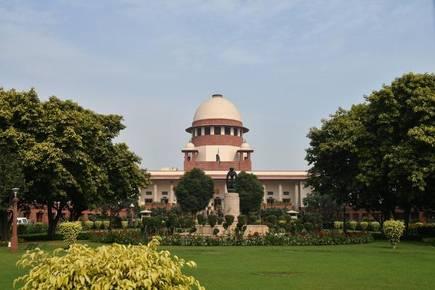Supreme Court to Examine Constitutional Validity of Citizenship Act

In response to around 60 petitions challenging the Centre’s controversial amendments to the citizenship law, the Supreme Court on Wednesday asked the Centre for a response by the second week of January. However, until then, the court has refused to stay the implementation of the law.
“We will have to see whether the Act has to be stayed,” said the three-judge apex court bench headed by Chief Justice of India SA Bobde and which included Justice BR Gavai and Surya Kant, reported NDTV.
Petitions including that by Communist Party of India (Marxist), Congress’s Jairam Ramesh and Trinamool Congress’s Mohua Moitra have been filed in the top court, which have called the act ‘unconstitutional’, which was passed in Parliament earlier this month and received President’s assent on December 12.
CJI Bobde orally asked the government to publicise the actual intent of the Act so that there was no confusion among the public about its objectives.
“There is a need to publicise why the Act (CAA) is passed. There is a need for that,” The Hindu reported CJI Bobde as saying to Attorney General K.K. Venugopal.
The law has drawn flak from the opposition, activists, students and civil society members from across the country who allege that CAA is in violation of the Constitution, as it grants citizenship on the basis of religion, NewsClick had earlier reported.
CAA, while giving the right to acquire Indian citizenship to Hindu, Sikh, Buddhist, Parsi, Jain and Christian migrants from Pakistan, Afghanistan and Bangladesh who arrived in India on or before December 31, 2014, excludes Muslims.
Among others, the petitioners also argued in the top court that the law is said to be in contravention of the Assam Accord. It dilutes the Assam Accord as it makes non-Muslim migrants from Bangladesh who had entered India before December 31, 2014 eligible for Indian citizenship.
“The result of the impugned Act will be that a large number of non-Indians, who have surrepticiously entered Assam after 25.03.1971, without possession of valid passport, travel documents or other lawful authority to do so, will be able to take citizenship and reside therein,” LiveLaw quoted All Assam Students Union (AASU) as stating in their petition.
Owing to this, the Northeastern states—especially Assam, Tripura and Meghalaya—are witnessing protests, violence, curfews and internet shutdown since before the passage of the Bill.
The pronouncements by the Supreme Court came at a time when protests against the CAA have spread to various parts of the country. Many places also reported violence during the protests, with latest examples being the police action against the student protesters of Jamia Millia Islamia and Aligarh Muslim University.
Moreover, many state governments, including Kerala, Punjab, West Bengal among others also recorded their protest against act and said the law won’t be implemented in the respective states.
(With inputs from PTI)
Get the latest reports & analysis with people's perspective on Protests, movements & deep analytical videos, discussions of the current affairs in your Telegram app. Subscribe to NewsClick's Telegram channel & get Real-Time updates on stories, as they get published on our website.
























